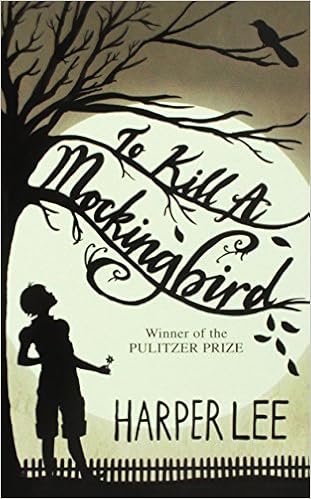Maus, Joe Rogan, and the paradox of progressive content banning
Guest Column by Elizabeth Backstrom
Recently a Tennessee school board made national news by banning the Pulitzer Prize-winning graphic novel “Maus” due to concerns about profanity and an image of female nudity in its portrayal of the Holocaust. Reactions to the story on my social media feed were predictable. Most of my friends were outraged that book banning still occurs on such a significant scale, and urged their friends to buy and read banned books. Some brought up the larger context of current restrictions around critical race theory in schools.

As of September 2021, seven US states have passed laws restricting what teachers can discuss and teach in the classroom and 20 more are considering similar laws, especially around the politically charged topics of race and gender.
This topic has concerned me for some time, and this concern has grown more severe as I see more states adopting this tactic. Until recently, I reserved my concern for the right. The more I have read, the more I realize this tactic is in no way reserved for the right. Indeed, it is not new: the WWI-era Espionage and Sedition Acts, which prohibited the public use of “disloyal, profane, scurrilous, or abusive language” about the United States, its military, or its flag, were put in place under a Democratic president. The first and second ‘red scares’ and accompanying restrictions also took place primarily under Democratic administrations. History can be painful.
However, I allowed myself to believe we had learned from these events and moved to a better place. I no longer believe this. I would like to officially sound the alarm to the left. This is not a drill, this is not a far-right commentator making a mockery of ‘wokeness.’ As someone on the left (the pretty-left left, not even a little bit right), I fear for the future of our party and our country if we continue down this path.
Banning: Where we are and where we’ve been
Banned Books Week began in the 1980s, in part due to the Supreme Court case Island Trees School District v. Pico (1982), which ruled that school officials can’t ban books in libraries simply because of their content. The school district ordered that certain books, which the Board characterized as “anti-American, anti-Christian, anti-Sem[i]tic, and just plain filthy,” be banned from student libraries.
A glance at books commonly banned in 2021 shows a surprising variety of texts and reasons for banning them, including “George” by Alex Gino, on the list, “To avoid controversy; for LGBTQIA+ content and a transgender character; because schools and libraries should not ‘put books in a child’s hand that require discussion’; for sexual references; and for conflicting with a religious viewpoint and ‘traditional family structure’,” “Stamped: Racism, Antiracism, and You” by Ibram X. Kendi and Jason Reynolds, on the list due to, “The author’s public statements, and because of claims that the book contains ‘selective storytelling incidents’ and does not encompass racism against all people” and “The Hate U Give” by Angie Thomas, on the list due to “profanity, and it was thought to promote an anti-police message.”
Also on the list is the classic “To Kill a Mockingbird” by Harper Lee, for “Racial slurs and their negative effect on students, featuring a ‘white savior’ character, and its perception of the Black experience.”

The takeaway is clear; despite our nation’s commitment to the First Amendment, book banning is still alive and well, and not restricted to a specific political party or ideology. What constitutes “just plain filthy” is and always has been in the eye of the beholder. This is the linchpin that makes content moderation so difficult.
Another trend that has accelerated in recent years is equally concerning to me, though it is not equal to government censorship. That trend is the pressuring of corporations to remove or limit information sources due to the political leanings of their customers. While corporations are not states, their political and social power has increased over recent decades, especially in the cultural sphere. Content bans or restrictions by corporations could not have been imagined by the founders, and are not addressed in the First Amendment. To address them would interfere significantly with the First Amendment freedom of business owners. However, the on-the-ground effects of corporate ‘censorship’ or alignment to specific political ideologies, especially when it comes to corporations that own newspapers and media outlets, should not be ignored. An additional concerning trend is the pressuring of companies to fire employees for relatively small offenses that don’t align with extremely progressive ideology, but that topic is beyond the reach of this essay.
As a tactic, I believe boycotts are suited admirably to pressuring companies to adopt specific policies regarding worker safety or product sourcing. ‘Voting with our dollar’ is one of the few economic freedoms awarded to people in a late stage capitalist society. However, there are much higher stakes at play in the editing and removal of information sources, and calling for these removals while at the same time demanding the end of, say, book banning by conservatives, is an incredibly hypocritical move by liberals. The two are not equivalent, of course, but just because something is legal doesn’t mean it’s constructive or helpful, or even the right thing to do. Liberals who have spent decades criticizing corporations and calling for their regulation now say things like ‘a private business can do anything they want,’ presumably, as long as it aligns with the speaker’s ideology. This is a problem.
Liberals calling for any limit of information sources, no matter how offensive this information is to them, should think carefully about the long-term ramifications of this type of move, were it to become normalized. We should never employ a weapon we are not willing, in the end, to have turned against us.
Is banning ever OK?
I believe sometimes it is, very rarely. To repeat the well-known axiom, free speech is not consequence free speech. The ‘fire in a crowded theater’ argument, sourced from Schenck v. United States (1919) was put forth by Justice Oliver Wendell Holmes, who argued that abridgment of free speech was permissible because it presented a “clear and present danger.” It’s worth noting, however, that this argument was in favor of the Espionage Act, and was about a person protesting the draft. Ironically, I’ve seen this argument used increasingly by liberals to favor a more censored version of speech, even though few of them are, as far as I know, in favor of either war or the draft. This example should illustrate how dangerous broadly applied principles with little context can be.
An argument can occasionally be made in certain cases for the public good or public safety. For example, former President Donald Trump regularly posted extremely offensive content on Twitter, and was never banned from the platform. He was banned when the company deemed him a significant risk to public safety and inciting violence. This tactic should not be used to ban or deplatform someone who offends you. It should especially not be used to ban or deplatform someone who offends you. That’s the point.
To follow the reasoning of Justice Louis Brandeis in Whitney v. California (1927), “If there be time to expose through discussion the falsehood and fallacies, to avert the evil by the processes of education, the remedy to be applied is more speech, not enforced silence. Only an emergency can justify repression.”
But what if, many argue, the content in question is without any merit, or downright harmful? I argue that ‘harmful’ is an extremely subjective label (see: all the reasons for banning books in 2021 alone) and second, even if the content is almost unanimously agreed to be without merit or harmful, that is exactly the reason the First Amendment exists, and why it should be more strongly protected. People will make extremely regrettable decisions if they are allowed to do so. To remove the potential to make mistakes also removes the potential to succeed in spite of them, to think critically about experiences, and to live in a way that reflects the reality of a pluralistic, complicated and often antagonistic world.
A specific contemporary example of this issue is the debate over Spotify’s hosting of Joe Rogan’s podcast. Spotify has an exclusivity contract with Rogan, and in recent weeks artists and customers have boycotted the platform calling for Rogan’s removal, largely due to his positions on COVID-19 vaccines. This is something artists and customers have a right to do. However, I don’t think it’s an effective tactic. Ultimately, what will happen if the boycott is successful? Creators such as Rogan will still make money. People who already believe their viewpoints are being marginalized will be vindicated in their beliefs, even though a wealthy podcaster is an unlikely avatar of the marginalized, and be more entrenched in those opinions. People who disagree with his views (I count myself as one of them) will migrate to platforms with more and more niche audiences.

These demographic trends, documented in books like The Big Sort and The Filter Bubble, undoubtedly contribute to our polarization as a democracy, which may be an abstract complaint, but on the ground is resulting in, say, people increasingly believing in whole sets of alternative facts, or that election results aren’t real. People are increasingly willing to approve of and commit violence to accomplish specific political agendas. The effects of polarization are very real and growing more concerning by the day. In my opinion, polarization is a fancy way to say we no longer see the other people as real people, and anything is therefore okay to do to them.
Examining history, many of today’s accepted truths in science or historical facts were initially rejected, mocked and distorted by their contemporaries. Of course, some bad ideas are just bad. However, hindsight is usually the only sure way to say which ideas these are. Heather Heying, a professor of evolutionary biology, wrote about this ideological tension in a 2021 essay for Aero magazine.
“The argument, of course, is not that all instances of dissent are necessary, or valuable, or reasonable. Angry, deceitful and dangerous words, actions and regimes have emerged from dissent countless times throughout history. But dissent in and of itself is utterly necessary. Instances of ill-considered dissent are too often trotted out as proof that dissent itself is dangerous, but this is poor logic, and often obscures other motives.
It is naïve to imagine that—living as we do within the constraints of the moment—we can see into the future with such clarity that those who would decide what speech is and is not acceptable are in a good position to know what is actually true. Many of Galileo’s interlocutors did not know what was true, yet they certainly believed that they did.
Too many would make themselves judge, jury and executioner of certain concepts and conversations, while claiming to be the sole proprietors of truth. They are engaging in a grand narcissism: they imagine themselves as, for the first time in history, able to see everything.”
Returning to the case that started Banned Books week, I would like to end by quoting something cited in that case, but actually sourced from another historic Supreme Court case, Tinker v. Des Moines. Decided in 1969, it helped define the rights of students in public schools. The students in question wanted to wear armbands to protest the Vietnam War. The school prohibited them from doing so, and parents sued the school for violating the students’ rights to free speech.
The Court took the position that school officials could not prohibit speech only on the suspicion that the speech might disrupt the learning environment. The students won the case 7:2.
“Any departure from absolute regimentation may cause trouble. Any variation from the majority’s opinion may inspire fear. Any word spoken, in class, in the lunchroom, or on the campus, that deviates from the views of another person may start an argument or cause a disturbance. But our Constitution says we must take this risk, and our history says that it is this sort of hazardous freedom—this kind of openness—that is the basis of our national strength and of the independence and vigor of Americans who grow up and live in this often disputatious society.”
Recommended Reading
https://areomagazine.com/2021/05/19/what-if-were-wrong/
https://www.nytimes.com/2022/01/29/opinion/culture/book-banning-viet-thanh-nguyen.html
https://www.law.cornell.edu/supremecourt/text/457/853
https://www.law.cornell.edu/supremecourt/text/337/1
Tinker v. Des Moines https://www.law.cornell.edu/supremecourt/text/393/503
https://www.powells.com/featured/banned-books-week-2021-blue-room
https://www.vox.com/22644220/critical-race-theory-bans-antiracism-curriculum-in-schools









